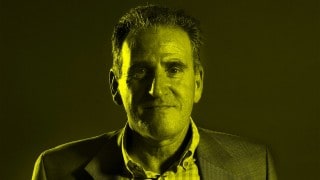Any number of explanations have been given for Europe’s baby bust, from the dramatic decline in Christian observance, to economic stagnation, to high divorce rates, to advanced education levels. While each of these factors may have its effect, even together they do not account for the overall picture. Those European nations that have the highest rates of Christian observance (France, Spain, and Italy), for example, also have the lowest birth rates. Nor is there any useful correlation between economic stagnation and fertility. The Gaza Strip has one of the worst economies in the world matched with one of the highest birth rates: A TFR of 5.64. Israel, on the other hand, has an economy still hampered by centralization and residual socialism, yet it has the highest fertility rate among Western democracies, at 2.38.
The explanation for Europe’s turn from reproducing its civilization is, in fact, as simple and self-contained as how children themselves are viewed. People avoid having children not because they are irreligious, lack financial means, fear the possibility of divorce, or carry university degrees. Rather, people do not have children because they do not want them: They find the curtailment of personal freedom and the assumption of the decades-long obligation inherent in parenthood unattractive, and they do not want to accept the basic restructuring of life that having a family requires. This is not a product of objective economic or social factors; rather, it is a subjective judgment about the meaning and purpose of one’s life and the civilization in which that life is lived. It is, ultimately, a moral answer to a moral question: The question of the value people ascribe to their own families and their own heritage, in a broader cultural context.
This answer, such as it is, did not take shape in a vacuum. The current generation of child-bearing Europeans came to view their lives through the cultural revolutions engendered by the generation of 1968, the great mass of young people who, ironically, were products of the postwar European baby boom and ascended to power and influence by virtue of their own demographic weight. The cultural upheaval of ’68 was an incongruous synthesis of revolutionary hedonism, political and economic collectivism, and a firm conviction that the West had become or had always been a force for imperialism, warfare, and environmental destruction. To a far greater degree than their counterparts in America, the ’68ers achieved real political power and with it a cultural hegemony which dominates much of French and European political and intellectual life to this day.
The legacy of these revolutionaries stands in stark contrast to what prevailed in Israel at around the same time. While young people in Europe celebrated a newfound awareness of their power and a desire to depart from the traditions of their forebears, their Israeli counterparts were called upon to rescue the Jewish state from annihilation. Young Europeans were looking to the future and seeing an era rendered infinitely malleable by enlightened reason and the good intentions of youth; Israelis looked to the future and saw enemy armies gathering on their borders with the intention of finishing what Hitler had started. Europeans, enamored of trendy, apocalyptic pseudo-science such as the “population bomb” theory, internalized the conviction that their civilization was part of the problem in the world, while Israel fought an existential war that assumed its own civilization to be part of the solution. Is it any wonder that Israeli families continue to thrive while Europe cannot sustain itself?
America, for its part, largely recovered from its flirtation with 1960s nihilism. Although the ethos of ’68 continues to be exorbitantly celebrated in the media and academia, the majority of Americans have always eyed it with suspicion. Most Americans believe in their own nation as a multi-generational effort to bring good to the world; as a result, they, like Israelis, have maintained significantly higher birth rates than those of European countries. But Europe settled in for a long romance, and today lives amidst the ideological ruins of the soixante-huitards, in a deeply entrenched culture of secular piety that has elevated the pursuit of leisure time to a central national purpose, that offers global warming as its foremost international cause, and that looks upon large families as the thankfully bygone products of cultural chauvinism and ecological indifference.
This, then, is the real question facing Sarkozy, the French people who have given him his mandate, and indeed all of Europe: Is Sarkozy capable of leading the European ethos away from its self-indulgence and toward a demographic renaissance? This will ultimately be an existential and moral question, and will not be addressed by piecemeal social and economic reforms. It demands nothing less than the re-establishment of a heroic national culture that rejects relativism and celebrates children. For that to happen, Europeans will have to come to believe that they belong to a civilization worth saving. If they do not, their best and brightest will repair to the United States and elsewhere, and the commanding heights of political and cultural power will pass to another population. Rome died from a lack of imperial vigor; Europe may die on its own soil, of its own barrenness.
http://www.azure.org.il/magazine/magazine.asp?id=386









